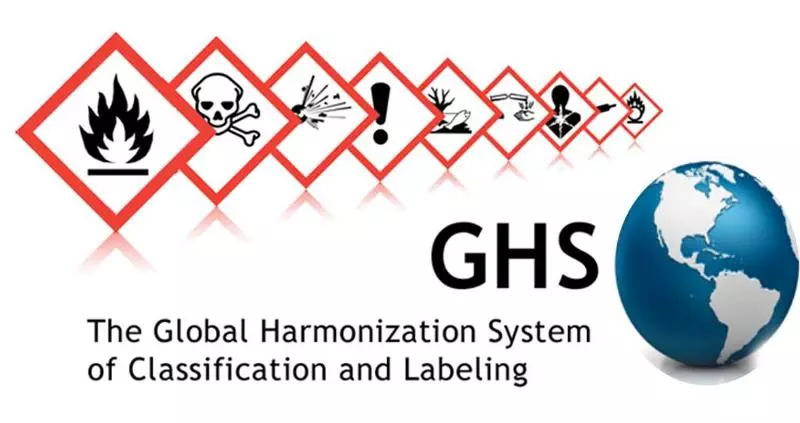
OSHA provides Clarification to Veolia Questions
Last fall, Veolia saught claification from OSHA on the GHS around non-RCRA wastes that still exhibit some level of hazard. This is OSHA's response.
Veolia North America
Thank you for your April 29, 2015 and May 26, 2015, letters to the Occupational Safety and Health Administration (OSHA). Your letters were referred to OSHA's Directorate of Enforcement Programs for a response. You requested clarification of OSHA's Hazard Communication standard (HCS), 29 CFR 1910.1200, with regards to hazardous waste that is not regulated by the U.S. Environmental Protection Agency (EPA) under the Resource Conservation and Recovery Act (RCRA). This letter constitutes OSHA's interpretation only of the requirements discussed and may not be applicable to issues not delineated within your original correspondence. Your paraphrased questions and our responses are below.
Background: Veolia provides environmental services to its customers (i.e., waste generators) including assisting with proper classification of waste materials, packaging of wastes according to U.S. Department of Transportation (DOT) requirements, and transportation of wastes off-site to an appropriate recycling, treatment, or disposal facility. The wastes managed by Veolia include both hazardous and non-hazardous wastes, that is, some of the wastes are regulated by RCRA and some are not.
OSHA's HCS 2012 does not apply to "[a]ny hazardous waste as such term is defined by the Solid Waste Disposal Act, as amended by the Resource Conservation and Recovery Act of 1976, as amended (42 U.S.C. 6901 et seq.), when subject to regulations issued under that Act by the Environmental Protection Agency." See 29 CFR 1910.1200(b)(6)(i).
A vast majority of wastes that are not covered by RCRA do not exhibit any hazardous properties, and therefore do not fall under the scope of the HCS. However, there is a small subset of these waste materials that may exhibit some level of hazard (such as toxicity) if ingested, injected, absorbed, or inhaled in significant quantities.
Examples of hazardous wastes that are not covered by RCRA include:
- Non-RCRA regulated commercial solid waste
- Electronic wastes (recycled computers, cell phones, electronic devices)
- Household hazardous wastes
- Waste products that are clearly non-RCRA hazardous wastes, but may require a DOT hazard label because of chemical properties.
Question 1: When Veolia is offered non-RCRA waste material for proper disposal, but the waste meets OSHA's definition of a hazardous substance, is the waste generator required to provide a safety data sheet (SDS)? Would the waste container require labeling per the HCS 2012?
Response: When waste does not meet the definition of "hazardous waste" under the RCRA regulations, it is covered by the HCS 2012 if it meets the standard's definition of "hazardous chemical" and if it does not fall under any of the other HCS 2012 exemptions listed under § 1910.1200(b)(6). The HCS 2012 defines "hazardous chemical" as "any chemical which is classified as a physical hazard or health hazard, a simple asphyxiant, or combustible dust, pyrophoric gas, or hazard not otherwise classified." See 29 CFR 1910.1200(c).
For a non-RCRA waste product, the HCS 2012 does not require that the waste generator create their own label or SDS; however, any chemical hazard information, including available labels and SDSs, received by the waste generator from upstream must be passed downstream with the non-RCRA waste product.
Question 2: When Veolia is offered a mixture of non-RCRA wastes for proper disposal, but one or more components of the waste meets OSHA's definition of a hazardous substance, is the waste generator required to provide an SDS for the mixture or is it acceptable for the generator to provide an SDS for each separate component of the mixture? Is labeling per the HCS 2012 required? Does the type of industry, for example, a laboratory, chemical manufacturer or distributor have any bearing on the requirement to provide an SDS?
Response: As stated above in the response to Question 1, the HCS 2012 does not require that the waste generator create labels and SDSs for their non-RCRA waste products; however, any available chemical hazard information that has been received from upstream must be passed downstream. Therefore, it would be acceptable to provide multiple SDSs downstream for a mixture of non-RCRA wastes. This would also apply to disposal of mixtures of non-RCRA waste product from laboratories, manufacturers, importers, and distributors.
Question 3: Veolia may place multiple containers of different but compatible waste materials that are non-RCRA regulated into the same outer shipping container. In this scenario, Veolia will mark and label the outer shipping container per EPA and DOT regulations. Would the outer package also need to be labeled per HCS 2012?
Response: No; the HCS 2012 label requirements are not applicable to outer shipping containers unless the outer container is also the immediate container.
Question 4: Would a generator of non-RCRA regulated waste be required to label the waste container (e.g. dumpster, bin, roll off-box, tractor or dump trailer, cardboard box, fiber, plastic or steel drum) per the HCS 2012?
Response: No; the HCS 2012 does not require the labeling of non-RCRA waste containers.
Thank you for your interest in occupational safety and health. We hope you find this information helpful. OSHA requirements are set by statute, standards, and regulations. Our interpretation letters explain these requirements and how they apply to particular circumstances, but they cannot create additional employer obligations. This letter constitutes OSHA's interpretation of the requirements discussed. Note that our enforcement guidance may be affected by changes to OSHA rules. Also, from time to time we update our guidance in response to new information. To keep apprised of such developments, you can consult OSHA's website at http://www.osha.gov.
If you have any further questions, please feel free to contact the Office of Health Enforcement at (202) 693-2190.
Sincerely,
Thomas Galassi, Director
Directorate of Enforcement Programs

